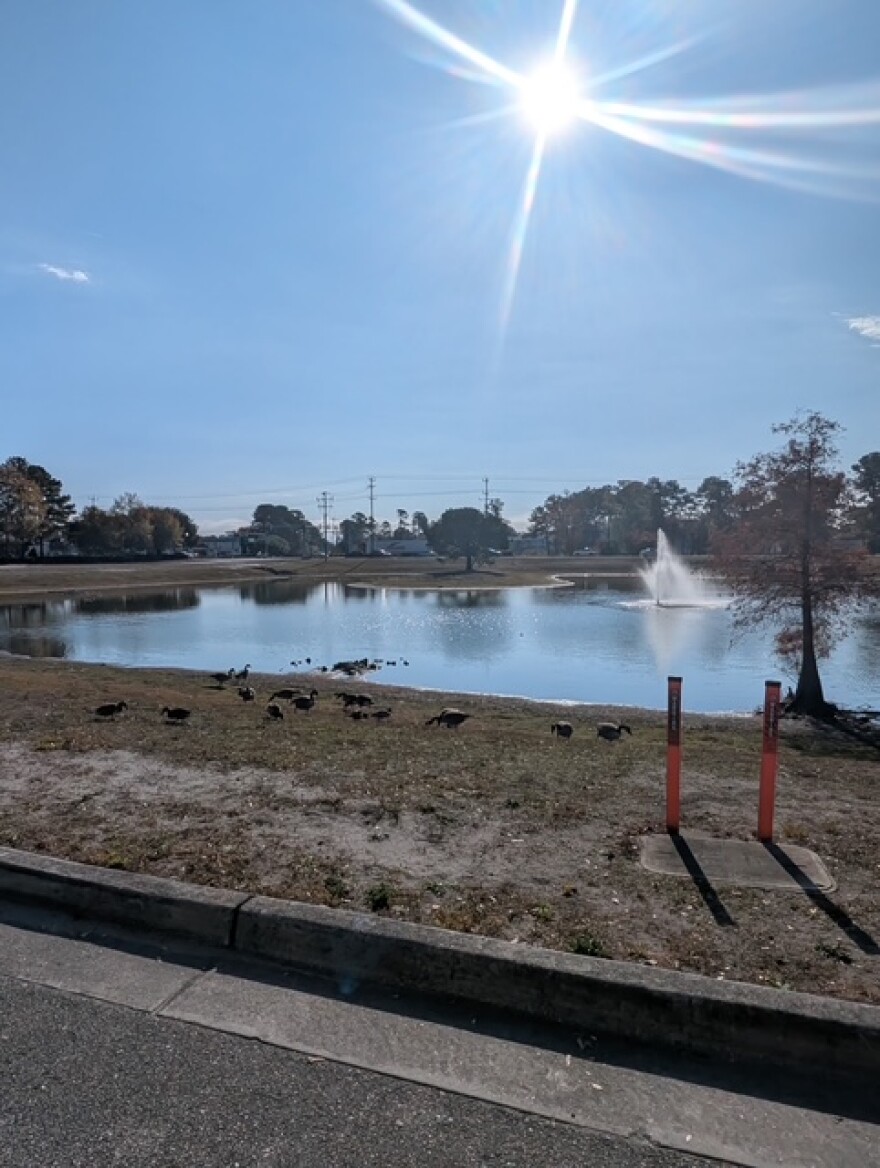Since early November, over 20 dead geese have been found in retention ponds near Shipyard Boulevard.
Chris Kent is the coastal regional wildlife biologist for District 2, which consists of 12 southeastern counties.
“First off, this is year four that we have detected avian influenza in the state, and [the public should not] handle dead animals with [their] bare hands. Call my agency to report them if anyone sees dead birds,” he said.
Kent added that the public should avoid approaching them altogether. However, he understands the concerns the public has been raising with his office.
“In the cases of these ponds, and there's a few of them in Wilmington, that have multiple dead birds or birds that are dying, when you start seeing multiple animals in an area dead and dying, and especially like various species of animals in an area, that is a red flag, and I really encourage people to immediately report that to my agency, so that we can investigate it and try to figure out what's going,” he said.
Avian flu is highly contagious among birds. It can jump to mammals, including humans, though the risk is low. According to NPR, the first and only case of a human death from avian flu was in Louisiana early this year, part of an outbreak that infected over 60 people; the patient was older and had underlying medical conditions.
Regarding local testing, Kent received support from wildlife enforcement, which helped him collect several samples over the past couple of weeks.
“I was two hours away and they responded to the scene,” he said.
But some of those samples are difficult to collect if the bodies have been decomposing in the water, he said.
Kent added that his office might receive delayed confirmation on this case because the recent federal government shutdown created a backlog at the U.S. Department of Agriculture Lab. He also said that some private owners in that area had some of their ducks tested, and those came back negative.
In the meantime, it’s best to keep pets away from diseased or dead birds is also important, as the virus can be transmitted through bird feces.
Another suggestion Kent makes is that if a person has hens/roosters or other domesticated birds, it might be sensible to “put a tarp or some sort of cover over the top of it, just to make sure a wild bird flying over, wouldn't maybe poop and [it] lands where your chickens are, because that's how this virus can be shed.”
He also warns people not to take sick birds to rehabilitation centers without calling first, as they might inadvertently spread the virus to healthy ones.
The Department of Agriculture has different rules for dealing with avian flu found on farms, which could lead to culling some or all of those populations, but wildlife officials wouldn’t necessarily do that for wild bird populations.
While avian flu has been circulating for some time, Kent said those cases typically clear up in the spring and summer when migrating waterfowl or wild ducks fly back north.
While Kent reiterates that private property owners should call his office to ensure they are properly handling the wildlife, he offer some general tips:
- Wear rubber gloves
- Use a big trash bag, turn it inside out, and use it to pick the animal up
- Use a shovel to pick the bird up and put it into a trash bag so you're not handling it with your bare hands
- Don't touch your face or your eyes or anything your mucus membranes until you're able to get home and wash your hands really well with soap and water
- Wash any clothes that are worn around the diseased or dead animal
Resources
- The hotline to report sick or dead wildlife is 1-866-318-2401. Kent said it’s staffed by four NC wildlife biologists, Monday - Friday, 8 a.m. - 5 p.m.
- 24/7 Wildlife Emergency Number - 1-800-662-7137 ext. 1 (also the line for reporting anyone harassing wildlife)
- Tips on Coexisting With Wildlife


